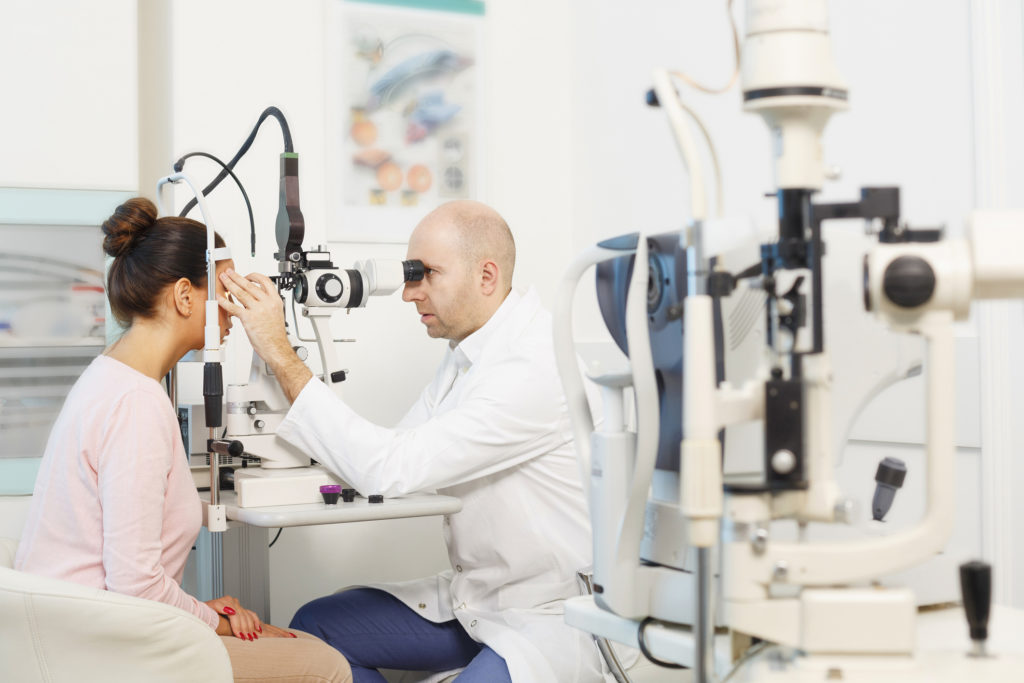By Carla Gasparini, OD

Oct. 30, 2019
Corporate subleases, in which an optometrist has a contract with a corporate chain, such as Walmart, to rent office space in which to practice, can be a great opportunity.
For optometrists who want to focus on medical eyecare, having an optical retailer in the same building, or just next door, can be liberating.
I have owned two independent sublease practices housed within a Walmart in the Austin, Texas, area, and have found this practice modality to be just what I needed to launch my career.
Unfortunately, there are still misconceptions about corporate sublease arrangements. Here are five misconceptions, and the truth.
Corporate OD Sublease Offices Are Refraction Mills
Those now graduating with an optometry degree are learning disease management and how to use advanced instrumentation to diagnose complex cases.
Regardless of where we work, we have all been trained the same. ODs have an ethical obligation to do no harm and to refer out when appropriate. In a corporate office, as in a private practice, you manage everything that walks into the door. If there is something you are not capable or willing to handle, you refer out, regardless of your practice modality. There are good and conscientious ODs, and ones who are not, in all types of practices.
Other Articles to Explore
A former employee once referred to my office as her unofficial mini “residency” since the occurrence of pathology within our patient population was so high. Half of my patients had little-to-no health insurance or healthcare in several years and were showing signs of common conditions such as high blood pressure, thyroid issues and diabetes which had been left untreated.
In a corporate sublease setting, you need to get comfortable with disease diagnosis and speaking to patients about getting physicals. Wellness visits must be urged and compliance with medications suggested.
The Corporation You Sublease From Is In Complete Control
There are predatory relationships in all forms of practice. Laws were passed in two-door states, such as Texas, that have made it illegal to tell a corporate doctor to stay open certain hours, only take certain insurances and make other similar demands.
Years ago there was a lawsuit brought by ODs in Texas against Walmart that cleared the way for ODs who are independent leasers to control their own destiny when it comes to practice management.
Walmart, which I have two subleases with, has taken a hands-off approach to my independent practices. I am not forced to stay open when I do not want to be, such as holidays and at night. I wanted a practice that was flexible for a working mom, and that’s why I entered into a formal agreement with Walmart.
Ask, ask and you shall receive. If your goal is to practice strictly five days a week, Monday through Friday, talk to a corporate recruiter and see if that opportunity exists in their practice structure. You might not make the same amount of income as a doctor who works on Saturday, but you will reap the benefits if you do stay open.
There Is No Individualized Care in Corporate Optometry
Many ODs are starting to realize that income can be derived from offering specialty services in corporate settings. Reimbursements have stalemated in recent years, and independent practice lease holders will need to find a way to keep practice income levels up. Being successful today in a corporate sublease arrangement is primarily about creating a unique patient-centered experience which can cater to those who suffer from various eye conditions such as dry eye. It’s all about providing individualized care and treatment plans.
I have known several corporate ODs who have purchased the instrumentation to fit scleral lenses or treat dry eye disease within their practices. It usually takes a “routine” visit to get the patient through the door, but after the exam, the OD can suggest different alternatives providing customized care to the patient at a price they can afford.
If there is a great need for dry eye care in your practice, get educated on the treatment advances and invest in the equipment you feel will bring the most comfort to those patients. Having a corporate lease does not keep any OD from practicing Ortho-K, fitting scleral or amniotic lenses. Speak to your regional manager and store manager about the treatment options you plan to add to your practice, so they can be on board.
Optometry is Cheapened By Corporate ODs
Providing a low-cost alternative does not make an OD better or worse. Utilization of their skill set and how they manage the patient encounter is most important. Sites such as 1-800 Contacts providing “self-performed” online refractions are more of a problem to our profession than a lower-cost eye exam performed by a trained individual in a corporate sublease location.
When I first opened my doors 15 years ago, I charged $45 at my corporate practice for an eye exam. At the time I was being reimbursed most of my fees either through cash/credit or via vision plans. I moonlighted at a private practice and I performed the same level of exam for those patients regardless of their modality of payment or insurance benefits. We are all dealing with the human experience, regardless of practice mode. You are only able to do the best job you can for those patients who humbly sit in your chair and ask you for help.
You have to be in tune with what makes you a unique doctor of optometry. Can those talents be utilized for patient care or practice management in a corporate sublease location? I would say they can be. A good exam experience can be had in various practice environments by ODs who are true to themselves and do their best for their patients.
Advanced Instrumentation Is Not Available to the Corporate OD
Corporate locations are realizing that ODs can be better and more efficient doctors if they have access to specialized equipment provided through their leases.
Some corporate locations offer digital eye exams through equipment made available to these leaseholders. Lease agreements that include electronic health records, OCT, retinal camera, along with visual field perimeters, auto lensometers, and auto-refractors and auto-keratometers are becoming more common. As ODs become more specialized they can join the ranks of corporate optometry without abandoning the medical model, and provide excellent patient care.
I have seen corporate sublease practices that have advanced instrumentation, and are using it every day to enhance the patient experience. These doctors chose to practice within a corporate lease to keep overhead costs down and to have access to high-traffic locations. They are able to provide a thorough exam to all patients regardless of location of practice.
Corporate ODs have to become more vocal in educating the public about what they can and do provide. The days of sitting on your laurels and having patients come to see you just because you are next to a Walmart, Lenscrafters, Vision Works, or another corporate retailer, are gone.
Patients are discriminating and internet savvy. We all need to up our game and keep up with the advances that have made optometry a fulfilling profession.
Do you have experience practicing in an independent corporate sublease location? What are the key benefits and challenges of this mode of practice?
 Carla Gavilanes Gasparini, OD, is the owner of Capital Eye Care & Hill Country Eye Care in Austin, Texas. To reach her: gaspariniod@gmail.com
Carla Gavilanes Gasparini, OD, is the owner of Capital Eye Care & Hill Country Eye Care in Austin, Texas. To reach her: gaspariniod@gmail.com



























